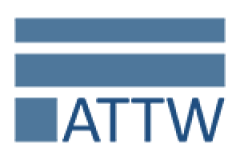Citation for
Carol Lipson
Elevated to ATTW Fellow, March 2002
(written by Elizabeth Tebeaux and Louise Phelps)
We are here today to elevate Carol Lipson to Fellow of the Association of Teachers of Technical Writing. Carol’s work in the field of technical communication, which began in the 1970s, reveals the sustained excellence and commitment to our field that those holding the title of Fellow must exemplify.
Carol has served the profession with great versatility as a scholar, technical writer, editor, consultant, undergraduate and graduate teacher, faculty mentor, student advisor, and administrator. Like many of us, she earned her bachelor’s degree in math and English, her master’s and doctorate in English, long before graduate rhetoric programs surfaced. The richness of her education has surfaced in her papers and presentations as well as in her teaching. She wrote some of the first papers on the history of technical communication, focusing on the contributions of Chaucer and Egyptian technical writing. She has continued her work in the history of technical communication in presentations to CCCC. As a teacher, Carol has pioneered courses in technical writing, science writing, professional writing, composition and rhetoric, computers and writing, and discourse of multimedia. As an administrator at Syracuse, she contributed to its innovations in both undergraduate and graduate education and to the professionalization of teachers. Her interests thus cover computers and writing, history of rhetorical practices, and the curricula and administration of writing programs.
Carol provided critical leadership in establishing and developing the Writing Program at Syracuse University as an independent department, while continuing for some time to hold a joint appointment in English. As a valued member of the English Department before moving her appointment fully into the Writing Program, she contributed to it significantly as a departmental citizen over many years, serving as undergraduate director in English before the establishment of the Writing Program. In the Writing Program, she helped design the undergraduate curriculum, taught for many years in the TA practicum, served as a consultant on technical writing to many local colleges, and established long-term cooperative and internship relationships for students with major business corporations. After serving the Writing Program as interim co-director and co-chair of the department, she was a vital participant in developing its doctoral program in Composition and Cultural Rhetoric and served as director of graduate studies in its early years. Carol has also been a tireless, vigorous, and effective advocate for improving the material conditions and professional status of part-time and nontenure track writing instructors.
Carol’s professional service activities exemplify her abiding commitment to technical communication. She has worked unstintingly in CPTSC, serving as a member of the executive committee since 1986. She has served as a member of the NCTE committee on Technical and Scientific Communication since 1987, helped organize the first technical writing sessions at MLA, and presented regularly at CCCC. She has served as consultant to the major book companies in evaluating proposed textbooks and has been a member of the editorial board of Computers and Composition since 1986.
Carol is the kind of faculty member in technical communication whose accomplishments merit recognition with this award. She has provided sustained, energetic leadership in developing curriculum for both service courses and technical writers. Her commitment to her university’s work in technical communication and to the professional organizations supporting technical communications is exemplary and ongoing. Her scholarship has enhanced the field by opening new areas of historical study. She is richly deserving of the honor we confer on her today– the title of Fellow of the Association of Teachers of Technical Writing.
